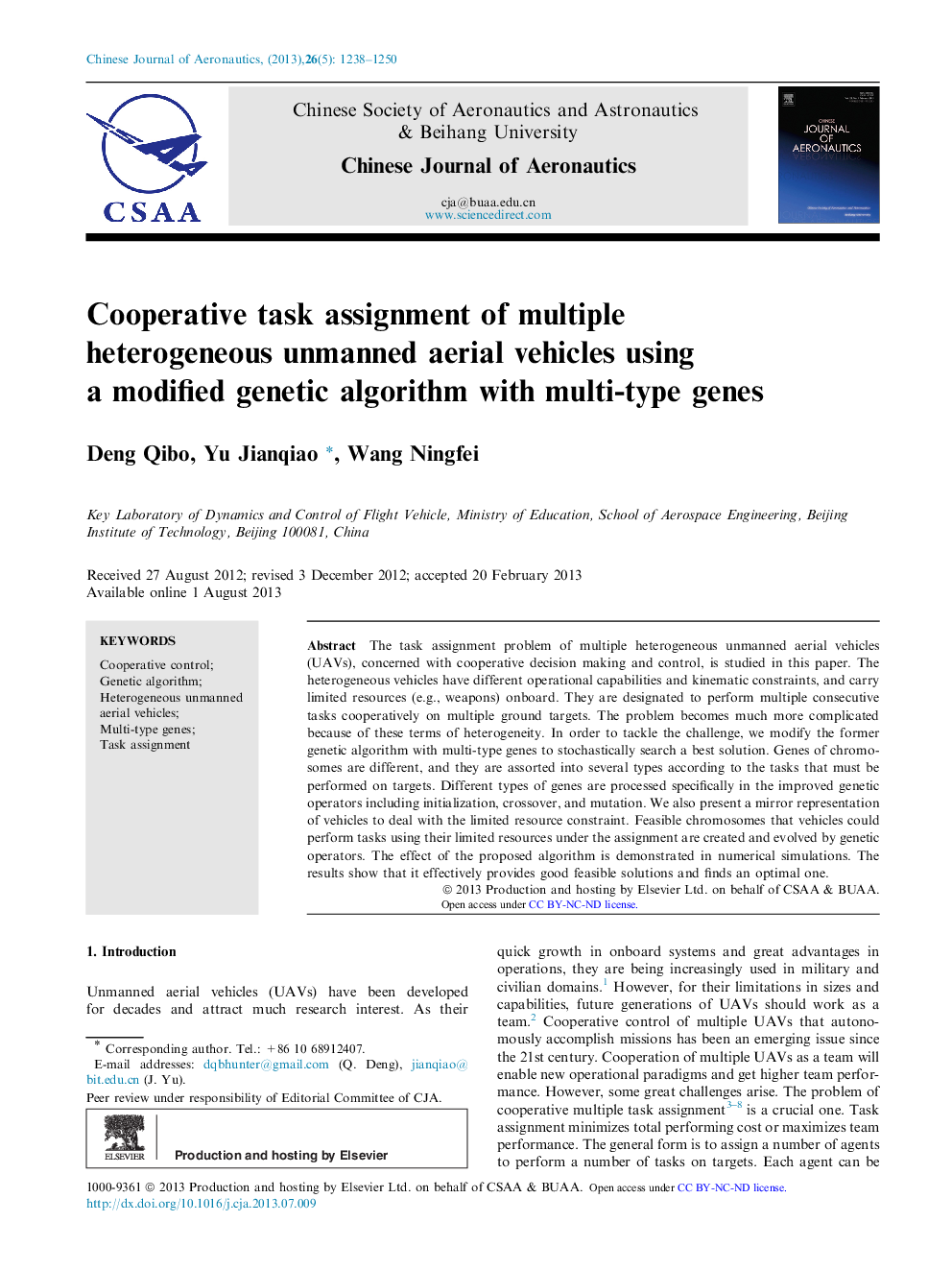| Article ID | Journal | Published Year | Pages | File Type |
|---|---|---|---|---|
| 757781 | Chinese Journal of Aeronautics | 2013 | 13 Pages |
The task assignment problem of multiple heterogeneous unmanned aerial vehicles (UAVs), concerned with cooperative decision making and control, is studied in this paper. The heterogeneous vehicles have different operational capabilities and kinematic constraints, and carry limited resources (e.g., weapons) onboard. They are designated to perform multiple consecutive tasks cooperatively on multiple ground targets. The problem becomes much more complicated because of these terms of heterogeneity. In order to tackle the challenge, we modify the former genetic algorithm with multi-type genes to stochastically search a best solution. Genes of chromosomes are different, and they are assorted into several types according to the tasks that must be performed on targets. Different types of genes are processed specifically in the improved genetic operators including initialization, crossover, and mutation. We also present a mirror representation of vehicles to deal with the limited resource constraint. Feasible chromosomes that vehicles could perform tasks using their limited resources under the assignment are created and evolved by genetic operators. The effect of the proposed algorithm is demonstrated in numerical simulations. The results show that it effectively provides good feasible solutions and finds an optimal one.
